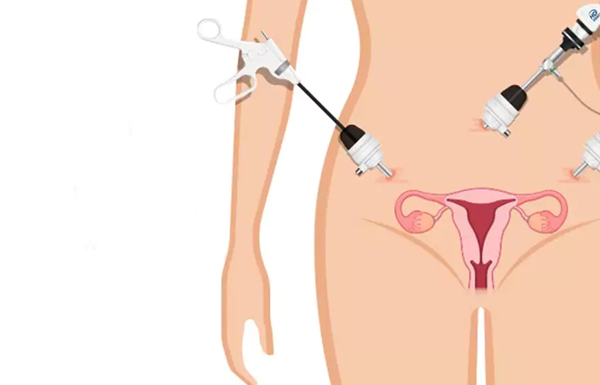Dr. Sankar Dasmahapatra
Laparoscopic Surgery Specialist in Kolkata, India
DGO, MS, Fellowship in Gynaecological Lap Surgery (Sydney -Australia)
Consultant Gynaecologist & Obstetrician
Infertility Specialist & Lapaoscopic Surgeon
DGO, MS, Fellowship in Gynaecological Lap Surgery (Sydney -Australia)
Consultant Gynaecologist & Obstetrician
Infertility Specialist & Lapaoscopic Surgeon
by Dr. Sankar Dasmahapatra

What is the truth about hysterectomy recovery?
It can take about 6 to 8 weeks to fully recover after having an abdominal hysterectomy. Recovery times are often shorter after a vaginal or laparoscopy hysterectomy. During this time, you should rest as much as possible and not lift anything heavy, such as bags of shopping.
What no one tells you about hysterectomy?
Hysterectomy: What Your Doctor Won't Tell You
You Won't Necessarily Go Into Menopause
The myth about hysterectomy Stretcher hears most often in her medical practice is that a woman will go into menopause afterward. You won't have periods, and can't get pregnant after your uterus is removed. But that doesn't necessarily mean menopause.
What are the negatives of a hysterectomy?
Risks include anaesthetic complications, blood transfusion, DVT, and injuries to other organs. Since hysterectomy is a major surgery, it's associated with the risks of any major operation, including those associated with general anaesthetic, blood transfusion, infection, wound healing, and deep venous thrombosis.
Is it good or bad to have a hysterectomy?
Hysterectomy is one treatment for many diseases and conditions. A hysterectomy may save your life if you have cancer of the uterus or ovaries, or your uterus is bleeding fast and it can't be stopped. In most other cases, a hysterectomy is done to improve a woman's life. But, it is not needed to save her life.
Can I live a normal life after a hysterectomy?
Hysterectomy can put you at greater risk of health problems. However, you can live a healthy life after a hysterectomy if you take steps to eat a nutritious diet, exercise regularly, and manage stress.
Is life better after hysterectomy?
You may even have more sexual pleasure after a hysterectomy. This may be due to relief from chronic pain or heavy bleeding that came from a uterine problem. Relief of symptoms may improve your quality of life. You may feel an overall sense of well-being.
What changes in body after hysterectomy?
You will no longer have periods. If your ovaries are removed during the hysterectomy, you may have other menopause symptoms. Change in sexual feelings. Some women have vaginal dryness or less interest in sex after a hysterectomy, especially if the ovaries are removed.
Why do doctors recommend hysterectomy?
The most common reasons for having a hysterectomy include: heavy periods – which can be caused by fibroids. pelvic pain – which may be caused by endometriosis, unsuccessfully treated pelvic inflammatory disease (PID), adenomyosis or fibroids. prolapse of the uterus.
What are the positive side effects of hysterectomy?
Benefits of a hysterectomy
1) Stopping abnormal, heavy bleeding.
2) Relieving chronic pain.
3) Restoring pain-free sex.
4) Preventing cancer.
5) Removing cancerous tissue.
6) Improving quality of life.